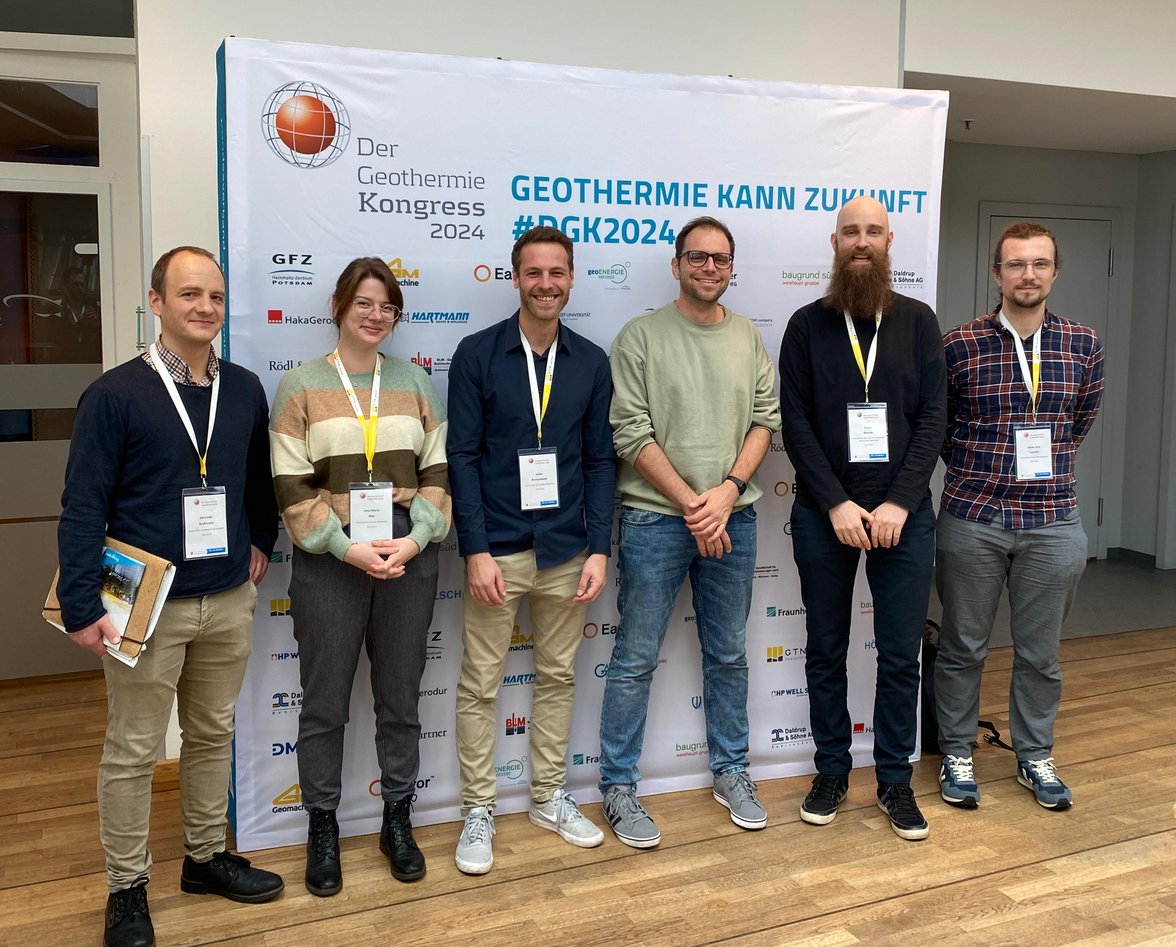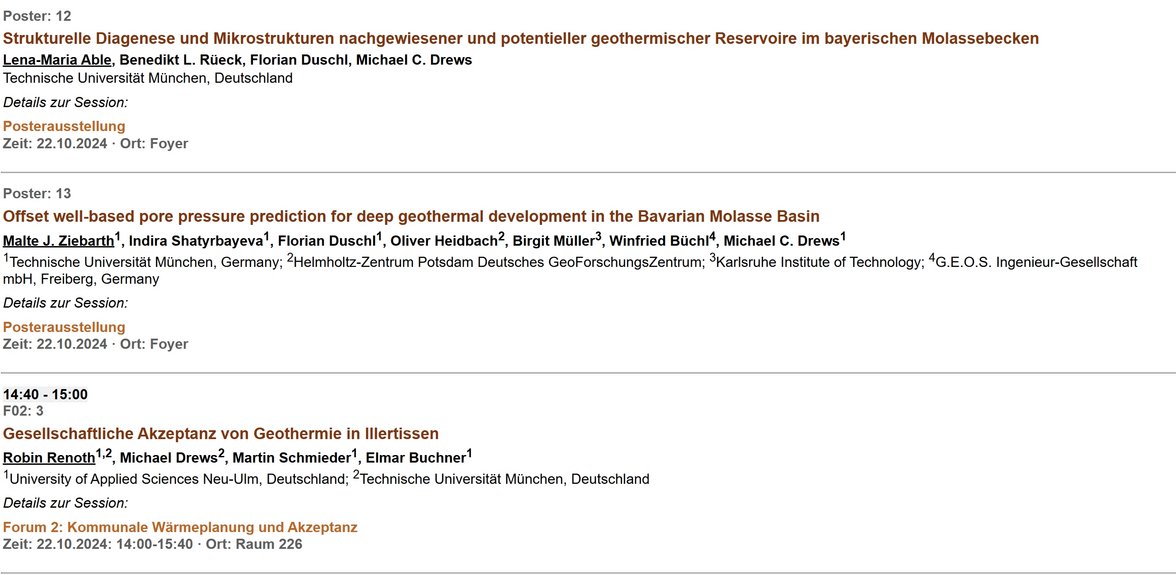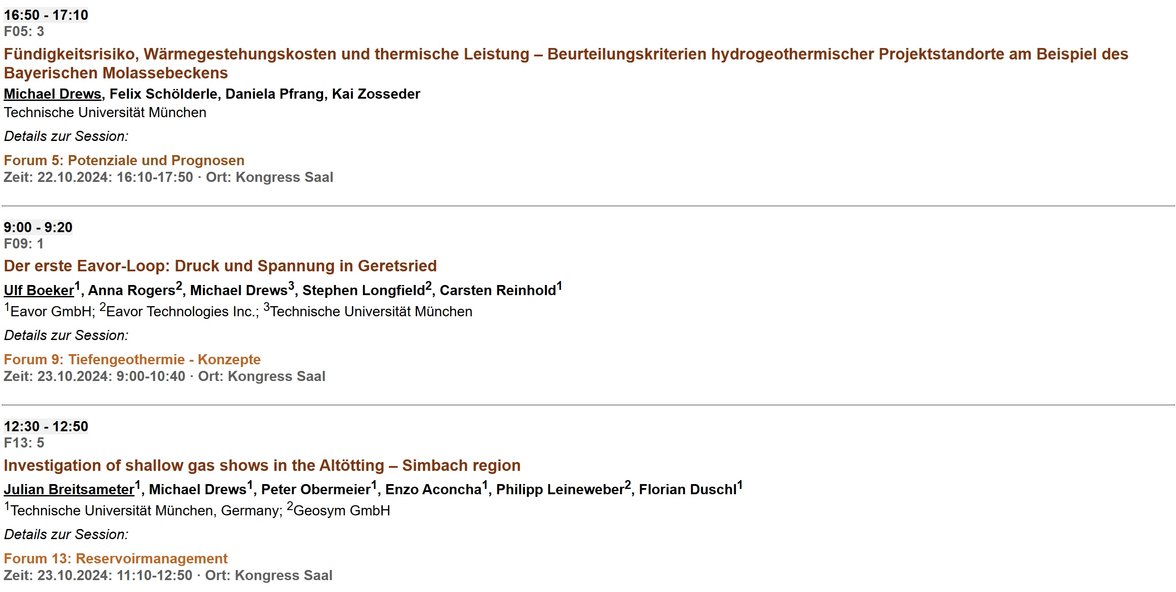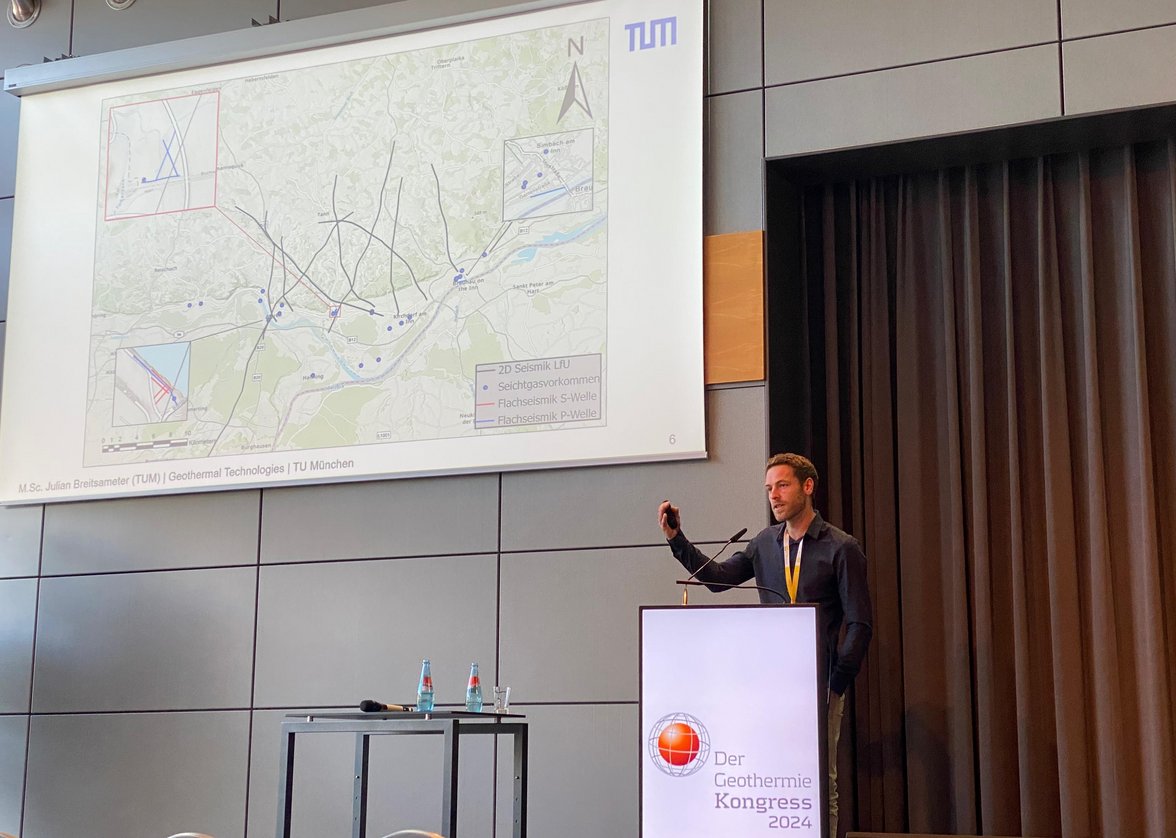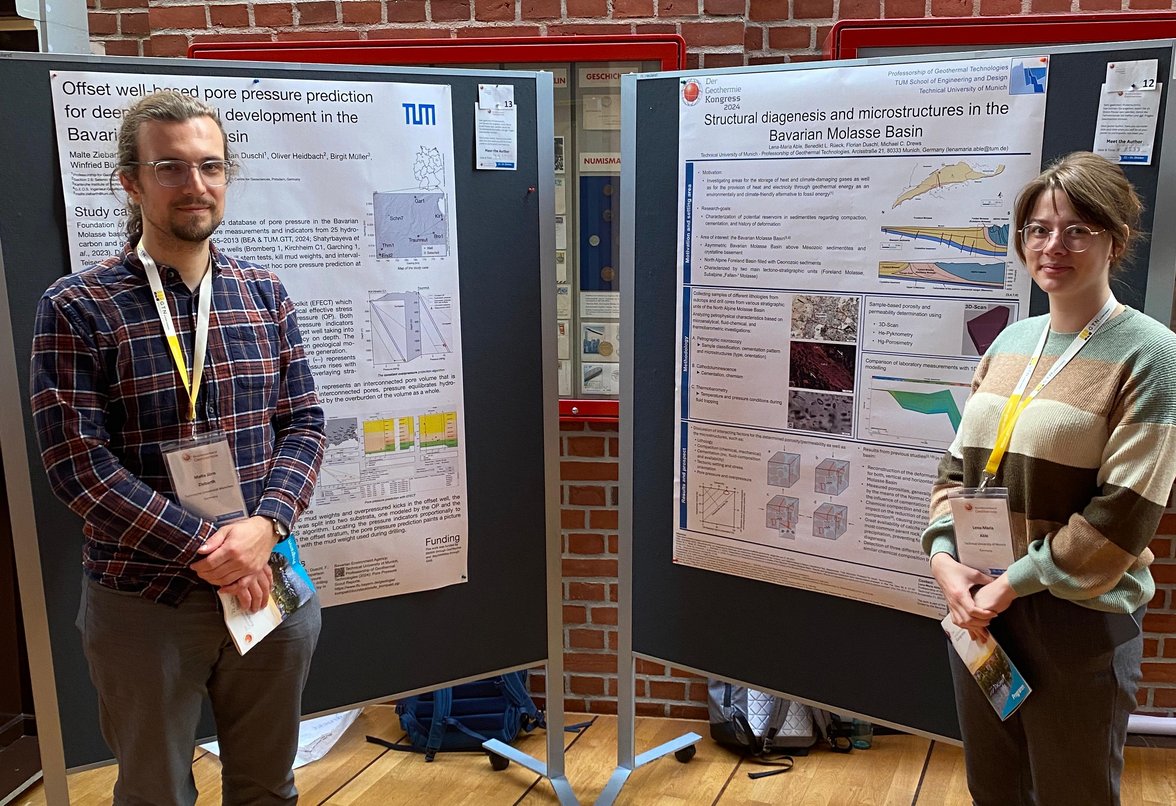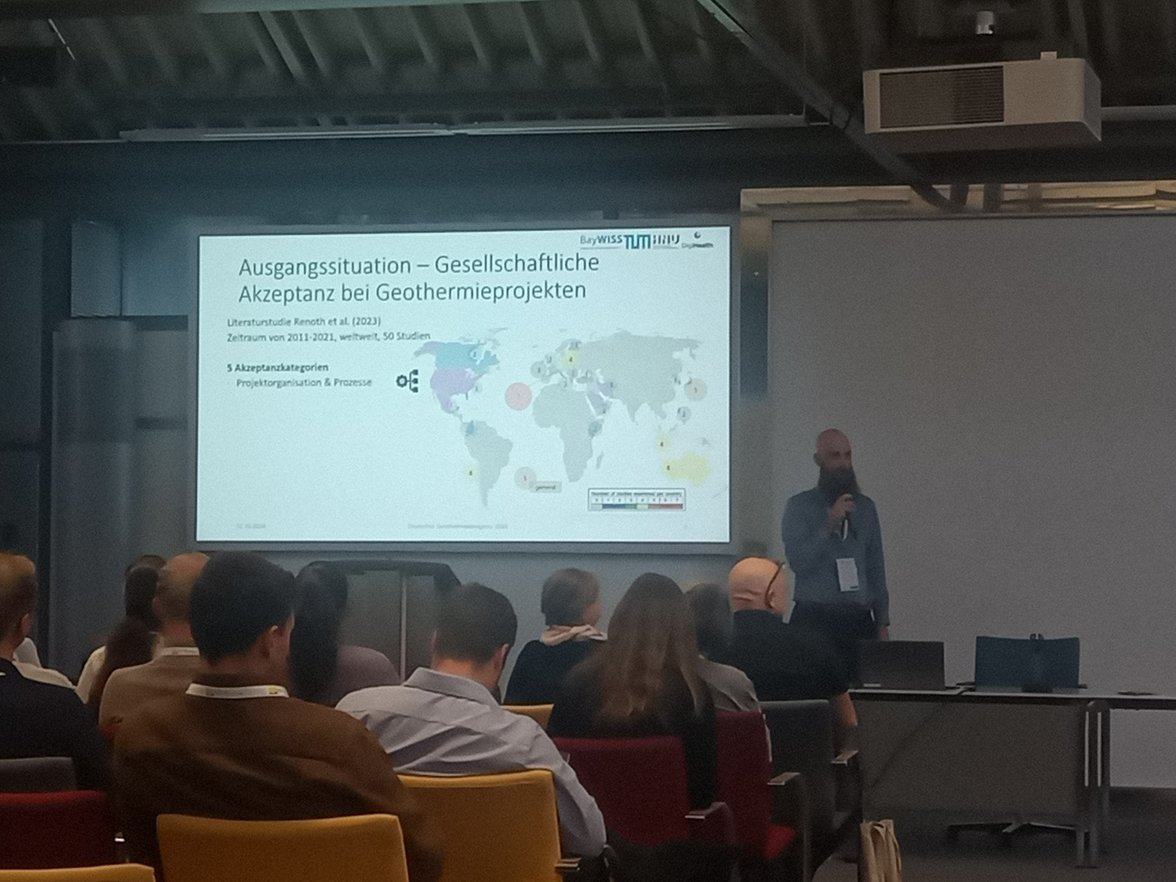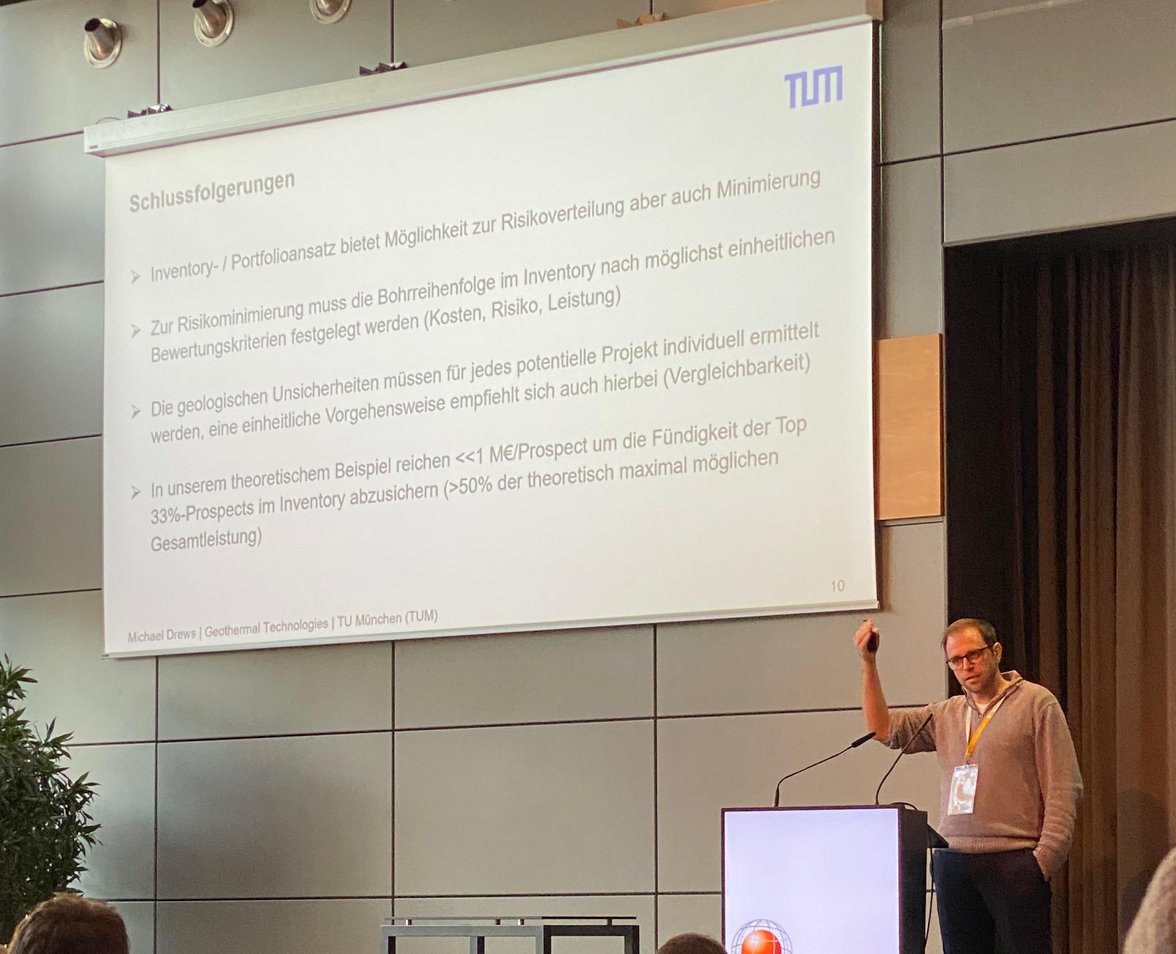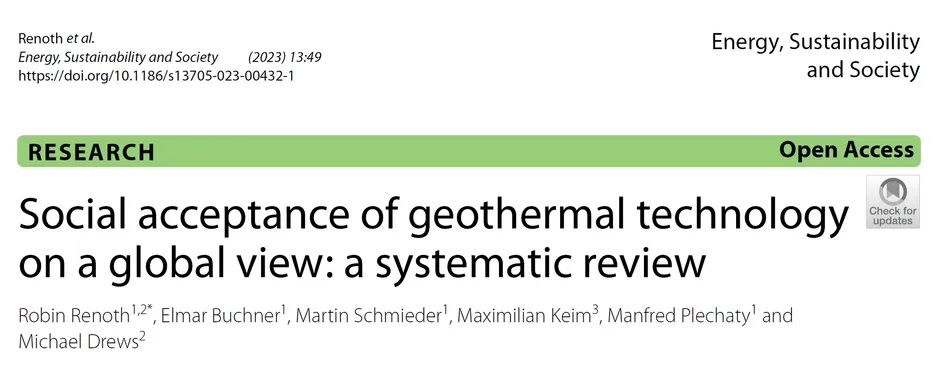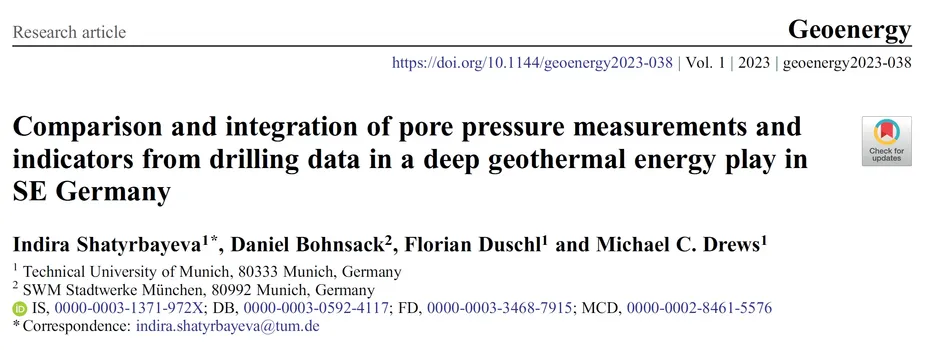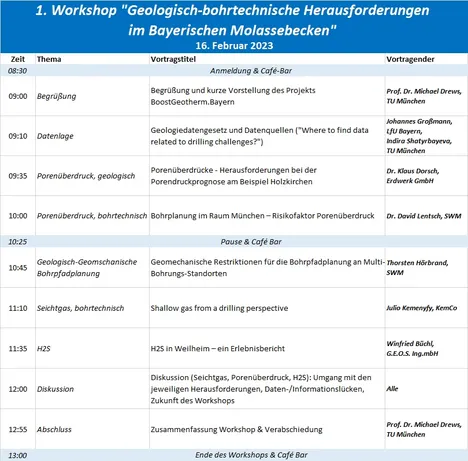New Paper: Mahmoodpour et al. (2025): Thermo-hydro-mechanical simulation considering cushion gases, reservoir heterogeneity and sensitivity analysis of hydrogen storage in saline aquifers.
12/06/2025

Thermo-hydro-mechanical simulation considering cushion gases, reservoir heterogeneity and sensitivity analysis of hydrogen storage in saline aquifers.
Saeed Mahmoodpour , Mrityunjay Singh , Sina Omrani , Ingo Sass, Michael Drews
This study presents a thermo-hydro-mechanical (THM) modeling for underground hydrogen storage (UHS) in saline aquifers, examining the influence of cushion gas composition, reservoir heterogeneity, and critical operational parameters on storage efficiency, pressure dynamics, and geomechanical stability. Using CO2, N2, and natural gas as cushion gases, we evaluated the gas plume propagation and containment efficiency scenarios with varying hydrogen-cushion gas ratios. Results indicate that CO2, due to its higher density and viscosity, offers superior plume control and storage efficiency by limiting upward migration (for small cushion gas to injected H2 ratio), thereby maintaining higher pressure near the injection wellbore. Alternately, N2 as cushion gas shows higher efficiency for high cushion gas to H2 ratio. Sensitivity analysis of 22 THM parameters identified reservoir thickness, injection rate, permeability, and geomechanical properties as the primary factors influencing hydrogen recovery and reservoir stability. Compared to conventional thermo-hydraulic (TH) models, the THM approach captures mechanical coupling effects that significantly improve measured pressure accuracy near wellbore regions, essential for optimizing injection rates and designing surface facilities. Additionally, reservoir heterogeneity models reveal that increased heterogeneity reduces storage efficiency and alters the stress distribution across the reservoir. This study highlights the critical role of THM coupling in estimating UHS performance and guiding site-specific parameter selection for optimal hydrogen containment and recovery.
Published in Journal of Energy Storage: doi.org/10.1016/j.est.2025.117302
New paper: Obermeier et al. (2025): Density-velocity relationships and vertical stress gradients in the Bavarian Molasse Basin
12/06/2025
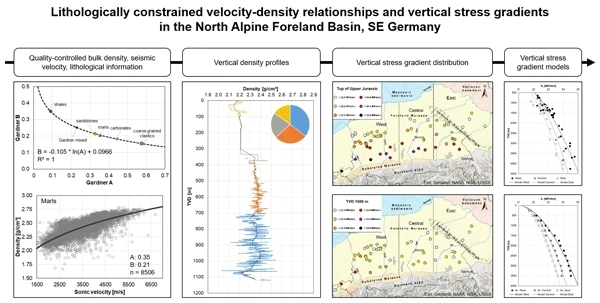
Lithologically constrained velocity–density relationships and vertical stress gradients in the North Alpine Foreland Basin, SE Germany
Peter Obermeier, Florian Duschl, and Michael C. Drews
Geophysical properties of the subsurface and the vertical stress acting within are key prerequisites to understanding fundamental geological processes and mitigating risks associated with the economic usage of the subsurface. In SE Germany, the North Alpine Foreland Basin (NAFB) is a well-studied sedimentary basin, which was extensively explored for oil and gas in the last century and which is currently explored and exploited for deep geothermal energy. The up to 5 km thick Cenozoic basin fill comprises mostly shales, marls, sandstones, carbonates, and coarse-grained clastics; in particular, Oligocene–Miocene age sediments display significant lateral lithological variability due to two marine transgressions. In addition, Cenozoic marine sediments in the eastern part of the basin are significantly overpressured. The basin sediments overlay Mesozoic passive margin sediments. Here, karstified Upper Jurassic carbonates represent the main target for deep geothermal exploration and production. Even though the North Alpine Foreland Basin has been well studied during its economic development, the relationships between basic geophysical parameters, such as bulk density and seismic velocity, both of which are key for seismic imaging and the prediction of physical rock properties, have not yet been systematically investigated. The same is true for the distribution of vertical stress gradients, a key input parameter for geomechanical modelling and the prediction of natural and induced seismicity. To improve the understanding of density–velocity relationships and the distribution of vertical stress gradients, we systematically analysed 78 deep wells with total depths of 650–4800 m below ground level, which form two overlapping datasets: bulk density and sonic velocity data from 41 deep boreholes were used to establish velocity–density relationships for the main lithological units in the North Alpine Foreland Basin in SE Germany. We applied these newly derived relationships to velocity data of a second set of 55 wells, which at least penetrated the Cenozoic basin fill section in the study area and spliced resulting bulk densities with measured but scarcer measured bulk density data. We integrated these spliced bulk density profiles to vertical stress to investigate the spatial distribution of vertical stress gradients. Thereby, we observed an eastward decrease in vertical stress gradients, which correlates well with the geological configuration of the North Alpine Foreland Basin in SE Germany. In addition, we investigated the distribution of vertical stress gradients at the top of the economically important Upper Jurassic carbonates. As a practical result, we provide lithologically constrained velocity–bulk density relationships and depth-dependent vertical stress gradient models, which can be used as an improved input for future geophysical, geomechanical, geological, and rock physics studies in the North Alpine Foreland Basin, both in fundamental and applied research contexts.
Published in EGU's Solid Earth: https://doi.org/10.5194/se-16-425-2025
Visit with Master Students to Eavor drill site in Geretsried
31/01/2025
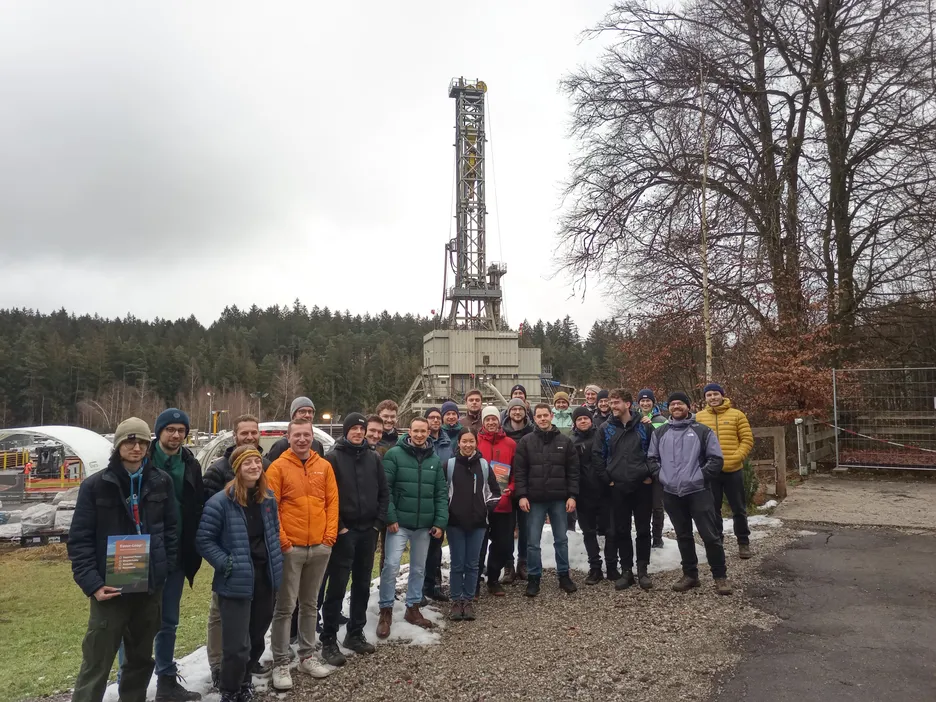
On Friday, January 31st, TUM.GTT visited the Eavor drill site together with the students of the master's programs “Engineering and Hydrogeology” (E&H) and “Geothermics/Geoenergy” (G&G).
We had real “rig weather” (0°C and snow) but as always: it was good to be out!
Thanks to Ulf Böker and the Eavor-Team for a great tour!
5th Annual Speed-Dating between Geothermal/Geoenergy Masterstudents and Geothermal Companies
24/01/2025
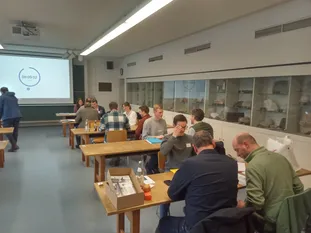
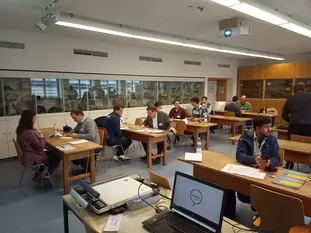
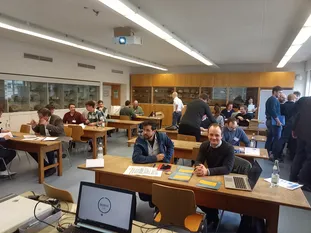
On January 24th, students of the Geothermal/Geoenergy Master Study Scheme discussed opportunities for jobs, master thesis topics and internships with representatives from companies active in the geothermal sector for the 5th time since 2020.
We would like to thank the students and representatives from Stadtwerke München (SWM), ERDWERK, ecoprimeGmbH, geoprimeGmbH, Geothermie Unterhaching, Erdwärme Grünwald, IEP-Pullach, HPC AG, KemCo and the Bavarian Environment Agency for their interest and participation!
The event was intiated and organized by the Geothermal-Alliance Bavaria (GAB), TUM's Professorship for Geothermal Technologies, FAU's Chair of Geology and Geothermie Unterhaching.
TUM.GTT @ ICDP Colloquium in Bremerhaven
19/11/2024
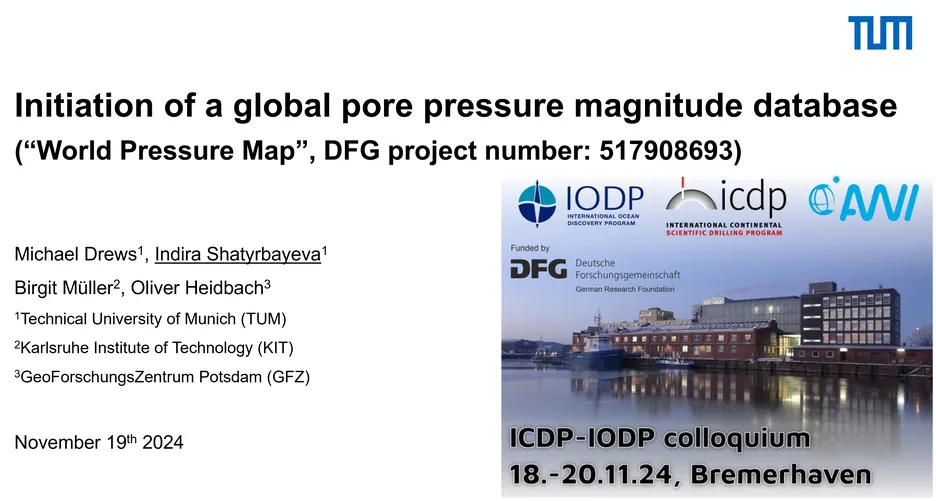
Michael Drews presented the current status of the DFG funded World Pressure Map project, which we conduct in collaboration with the World Stress Map project.
TUM.GTT auf dem Geothermiekongress 2024
24/10/2024
New paper!
New paper reflecting on sonic velocity and electrical resistivity measurements for pore pressure evaluation in the North Alpine Foreland Basin, SE Germany | 06/08/2024

Download: https://doi.org/10.1144/petgeo2024-014
Abstract
This paper combines quality-controlled pore pressure measurements and indicators with geophysical well logs of 310 deep wells to evaluate the pore pressure distribution in the overpressured North Alpine Foreland Basin, in southeast Germany. Previous studies relied chiefly on low resolution checkshots and vertical seismic profiles calibrated to only a few pore pressure measurements. Current study based on sonic and electrical resistivity logs indicates that more than one shale normal compaction trend is required to appropriately assess pore pressure from geophysical well logs. Thereby, the necessary adjustments of the derived compaction trends apply to both sonic and resistivity data, which possibly reflect a gradual change in mineralogical composition with decreasing clay content or progressing cementation from north to south or an increase of horizontal loading driven compaction towards the North Alpine Thrust Front. The newly derived compaction-based pore pressure distribution is combined with drilling data-based pore pressure evaluations and offers a comprehensive update of previous pore pressure investigations in the North Alpine Foreland Basin. Our study is therefore of key importance for optimised well planning and cost-effective drilling in the course of the recent expansion of deep geothermal energy exploration in the overpressured North Alpine Foreland Basin.
Shallow seismic campaign between Altötting and Simbach (SE Bavaria)
04/06/2024
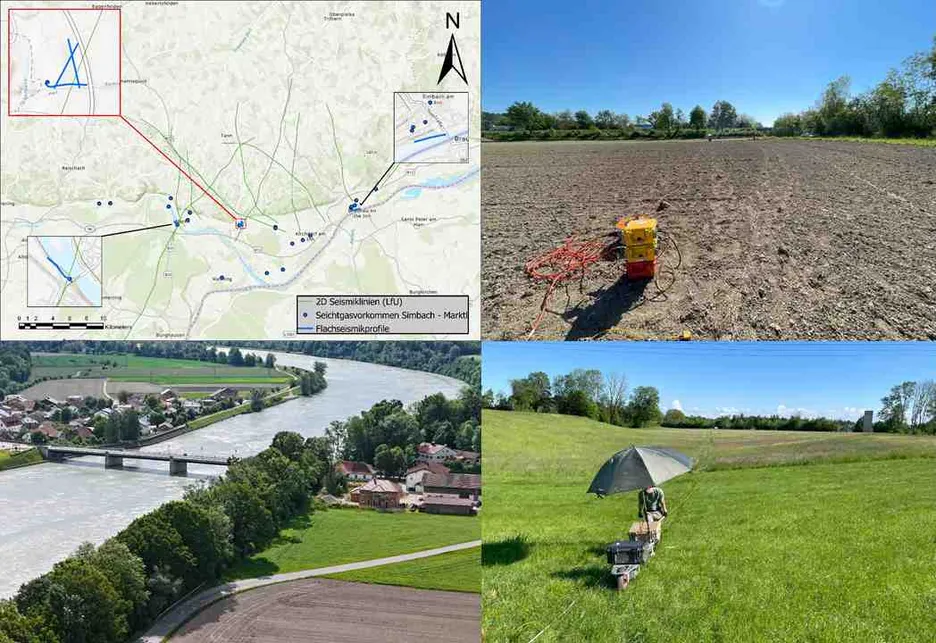
Inorder to test the detectability of shallow gas deposits, a shallow seismic acquisition campaign was carried out between Altötting and Simbach a. Inn from May 13th to 17th, 2024. The campaign was conducted in cooperation with GeoSym GmbH. To do so, both P-wave and S-wave reflection seismic profiles with a total length of approximately 2000 m were acquired. Shallow gas deposits can pose a significant drilling risk, but pre-drill detection on conventional seismic is challenging. Due to the shallow gas deposits that have been proven in the past, the study area is particularly suitable for drawing conclusions about the detectability of shallow gas through seismic measurements and for improving the safety of (geothermal) drilling in other regions in the future through preliminary measurements.
The campaign is part of TUM.GTT's research project GeoChaNce, funded by the Bavarian Environment Agency.
4th Annual Speed-Dating between Geothermal/Geoenergy Masterstudents and Geothermal Companies
26/01/2024
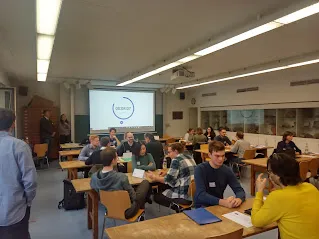
On January 26th, students of the Geothermal/Geoenergy Master Study Scheme had the chance to discuss opportunities for jobs, master thesis topics and internships with representatives from companies active in the geothermal sector.
We would like to thank the students and representatives from geoENERGIEKonzept, Stadtwerke München (SWM), ERDWERK, ecoprimeGmbH, Geothermie Unterhaching, Erdwärme Grünwald and IEP-Pullach for their interest and participation.
The event was intiated and organized by the Geothermal-Alliance Bavaria (GAB), TUM's Professorship for Geothermal Technologies, FAU's Chair of Geology and Geothermie Unterhaching.
2 new projects led by TUM.GTT start in 2024!
01/01/2024
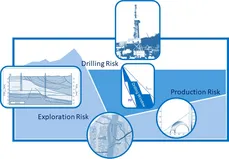
TUM.GTT leads two new projects (GeoChaNce.Bayern and BORIS) funded by the Bavarian Environment Agency:
GeoChaNce.Bayern (Geological-physical characterization of the North Alpine Foreland Basin in Bavaria, German title: Geologisch-Physikalische Charakterisierung des Nordalpinen Vorlandbeckens in Bayern)
BORIS (Drilling Risk, German title: Bohrrisiko)
TUM.GTT @ DGK 2023 in Essen
18/10/2023

TUM.GTT contributed two talks and a poster to the German Geothermal Congress (Der Geothermiekongress) 2023 in Essen.
Robin Renoth talked about social acceptance of deep geothermal energy: "Sind Bedenken gegenüber der Geothermie länderspezifisch? – Deutschland, die Schweiz und Japan im Vergleich"
Peter Obermeier presented a poster adressing velocity-density relationships and the vertical stress distribution in the North Alpine Foreland Basin in SE Germany (Bavaraian Molasse Basin): "Lithologisch differenzierte Dichte-Geschwindigkeitsbeziehungen zur regionalen Spannungs- und Kompaktionsmodellierung im Bayerischen Molassebecken"
Michael Drews gave a talk about what to learn from pore presure and stress analysis with regard to deep geothermal exploration in the North Alpine Foreland Basin: "Integration of basin analysis and regional geomechanical investigations in the North Alpine Foreland Basin (Bavarian Molasse Basin) – implications for drilling, exploration and production"
TUM.GTT @ Gussow Conference 2023
12/10/2023
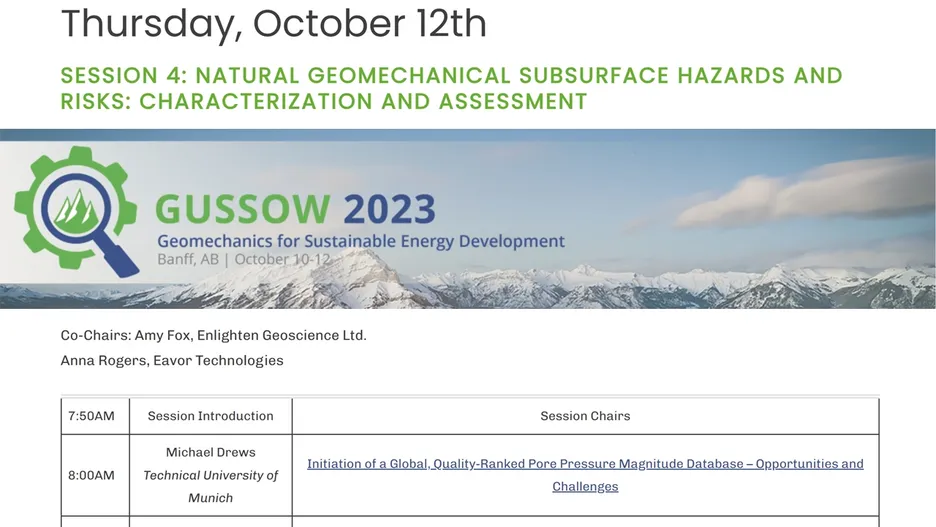
Michael Drews was invited to speak about the ongoing efforts of TUM.GTT to initiate a global and quality-ranked pore pressure magnitude database in collaboration with the World Stress Map Project at the Gussow 2023 in Banff, Canada!
Co-Authors: Indira Shatyrbayeva, Birgit Müller (KIT) and Oliver Heidbach (GFZ Potsdam)
TUM.GTT @ EGU
28/04/2023

Dr. Florian Duschl and Dr. Saeed Mahmoodpour represented TUM.GTT with a poster and talk about mechanics of the subalpine wedge at the EGU general assembly in Vienna.
The abstracts can be accessed here:
Poster by. F. Duschl et al.: 10.5194/egusphere-egu23-16710
Talk by S. Mahmoodpour et al.: 10.5194/egusphere-egu23-7038
TUM.GTT @ Doctoral Candidate's Day of TUM's School of Engineering and Design
16/03/2023
Indira Shatyrbayeva, Peter Obermeier and Robin Renoth presented their PhD-works about drilling risks and compaction in the North Alpine Foreland Basin and social acceptance of deep geothermal energy at SoED's Doctoral Candidate's Day. Congrats to Indira for receiving the award for the best scientific talk!
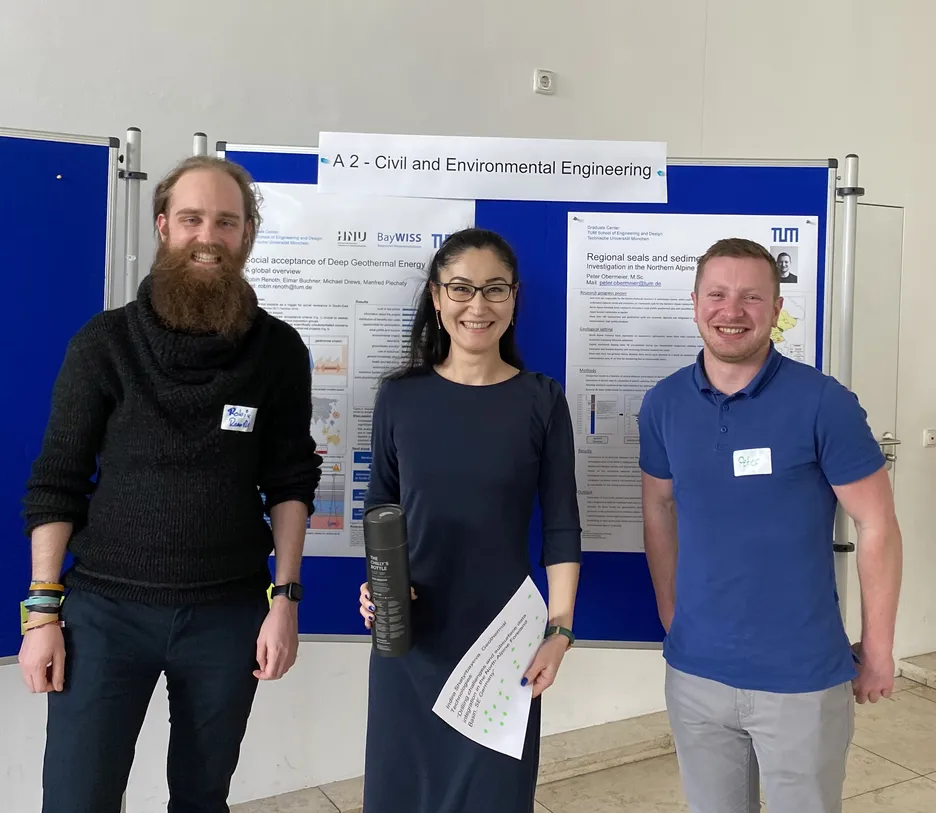
TUM.GTT visits geothermal power plant in Laufzorn
06/03/2023
The GTT-Team visited the deep geothermal power/heat plant in Laufzorn/Oberhaching as a team outing on March 6th 2023. Thanks to Ferdinand Hülß for the nice tour, insights and discussions!
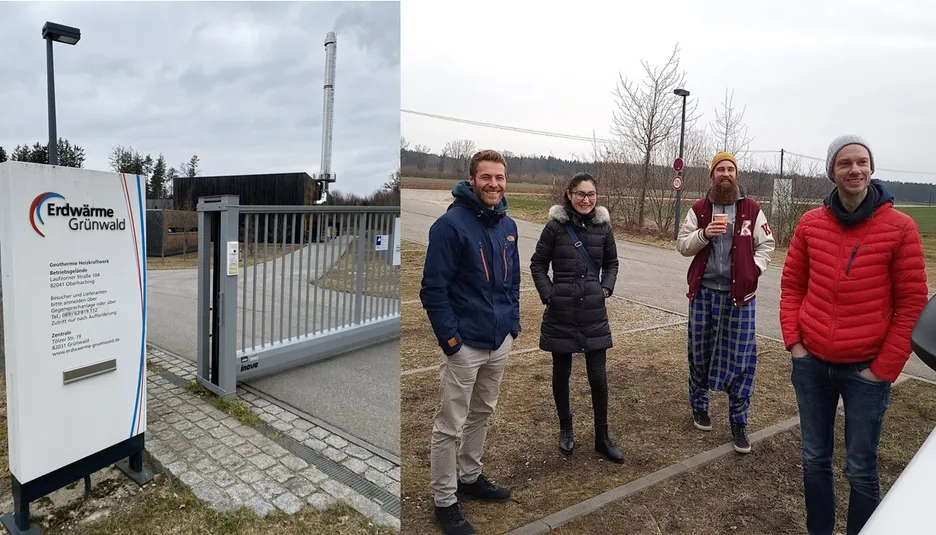
1. Workshop „Geologisch-bohrtechnische Herausforderungen im Bayerischen Molassebecken“
02/03/2023
Im Rahmen des Forschungsprojekts Boost.GeothermBayern fand am 16. Februar 2023 der erste Workshop „Geologisch-bohrtechnische Herausforderungen im Bayerischen Molassebecken“ an der TU München statt. Der Workshop wurde vom Fachgebiet für Geothermal Technologies der TUM gemeinsam mit der Geothermie-Allianz Bayern organisiert.
Insgesamt haben sich mehr als 30 TeilnehmerInnen aus Forschung, Behörden und Praxis zum Wissensstand und Umgang mit den geologisch-bohrtechnischen Herausforderungen im Bayerischen Molassebecken ausgetauscht. Hierzu fanden verschiedene Fachvorträge aus Forschung, Behörden und Praxis sowie Diskussionsrunden zu folgenden Themen statt:
- Relevante Untergrunddaten und Stand der Forschung
- Porenüberdrücke aus geologischer und bohrtechnischer Sicht
- Geomechanische Bohrpfadplanung
- Umgang mit Seichtgas- und H2S-Vorkommen
Im Anschluss haben ~60% der TeilnehmerInnen die Möglichkeit zur Teilnahme an einer Umfrage zum Workshop wahrgenommen. Die UmfrageteilnehmerInnen setzten sich dabei zu 2/3 aus GeowissenschaftlerInnen und zu 1/3 aus BohringenieurInnen zusammen. Hierbei waren mehr als 95% der UmfrageteilnehmerInnen mit Organisation, Länge und Inhalt des Workshops sehr zufrieden oder zufrieden. Ca. Zweidrittel der UmfrageteilnehmerInnen haben sich dabei für eine jährliche Ausrichtung des Workshops ausgesprochen. Zusätzlich zu den im Workshop adressierten Themen wurden außerdem weitere relevante geologisch-bohrtechnische Herausforderungen ausgemacht. Hierbei wurden am häufigsten die Themen Bohrungsdesign & Bohrungsintegrität, Spülungsverluste & Fracture Gradient sowie Bohrlochstabilität genannt. Die höchste Priorität und den größten Forschungsbedarf sehen die Umfrageteilnehmer dabei bei der Bohrlochstabilität.
3rd Annual Speed-Dating between Geothermal/Geoenergy Masterstudents and Geothermal Companies
27/01/2023
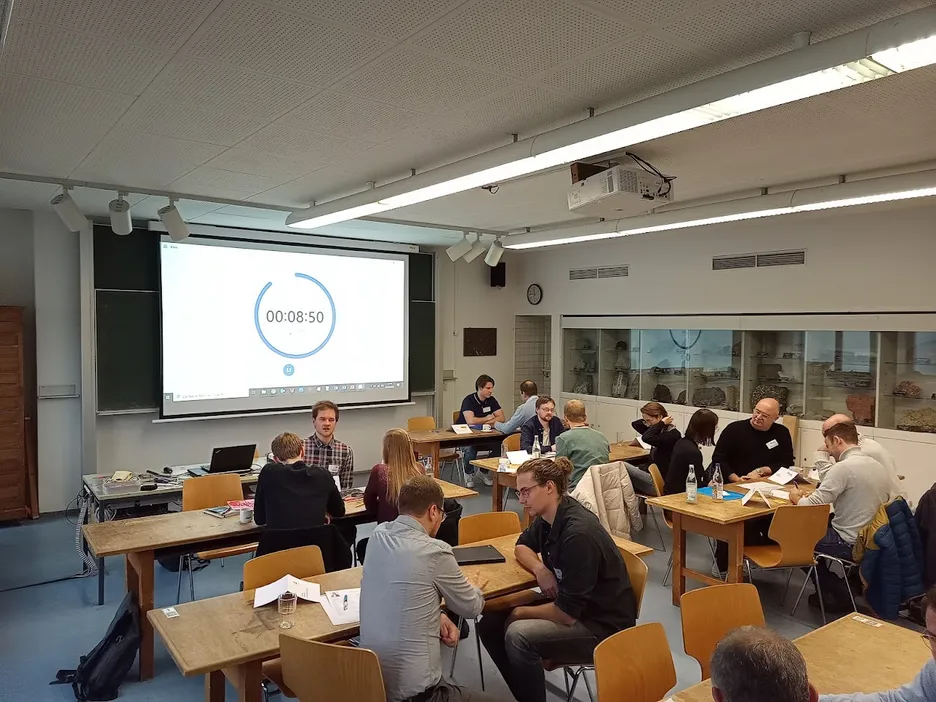
On January 27th, students of the Geothermal/Geoenergy Master Study Scheme had the chance to discuss opportunities for jobs, master thesis topics and internships with representatives from 9 companies active in the geothermal sector. The companies covered the entire range from project development, geoscience, drilling and operators in both deep and shallow geothermal energy.
We would like to thank the students and representatives from Erdwärme Grünwald, Erdwerk, geoENERGIE Konzept, G.E.O.S., Geothermie Neubrandenburg (GTN), Geothermie Unterhaching, Innovative Energie für Pullach (IEP), KemCo and Stadwerke München (SWM) for their interest and participation.
The event was intiated and organized by the Geothermal-Alliance Bavaria (GAB), TUM's Professorship for Geothermal Technologies, FAU's Chair of Geology and Geothermie Unterhaching.
Geothermie: Rechnerisch 40 Prozent des bayerischen Wärmebedarfs bedienbar
09/12/2022
Forschende der Technischen Universität München (TUM) sehen großes Potenzial für den Ausbau der tiefen Geothermie in Bayern. In einer Analyse zum Masterplan Geothermie zeigt der Forschungsverbund Geothermie-Allianz Bayern Möglichkeiten auf, dass mithilfe von Wärmeverbundleitungen auch geologisch benachteiligte Regionen im Freistaat mit nachhaltiger Fernwärme versorgt werden können. Dabei wird erstmals das technische Potenzial der hydrothermalen Geothermie in Südbayern betrachtet. Auftraggeber der Studie ist das Bayerische Staatsministerium für Wirtschaft, Landesentwicklung und Energie, das den Bericht kürzlich veröffentlicht hat. Zur kompletten Pressemitteilung der TUM
